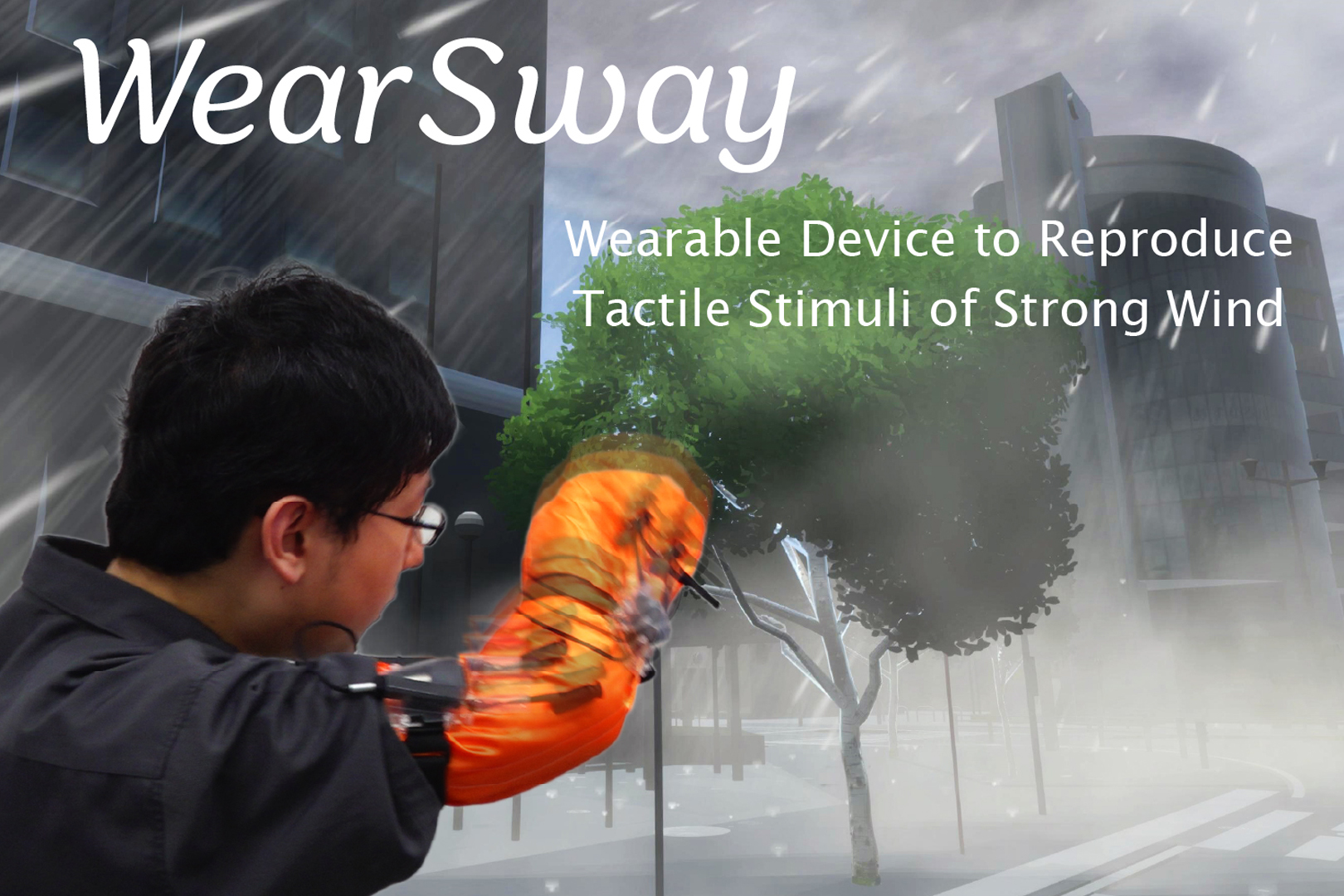“WearSway: Wearable Device to Reproduce Tactile Stimuli of Strong Wind through Swaying Clothes”
Conference:
Experience Type(s):
Title:
- WearSway: Wearable Device to Reproduce Tactile Stimuli of Strong Wind through Swaying Clothes
Organizer(s)/Presenter(s):
Description:
Wind displays reproduce cutaneous stimuli of wind by blowing actual airflow to make virtual content more immersive. However, reproducing the sensation of a strong wind across the whole body, as might be used in educational or entertainment scenarios, typically requires large and cumbersome wind fans. WearSway is a compact and lightweight wearable haptic device that simulates the swaying of clothes in the wind to express the strong wind without large equipment. The device achieves this by using motors and strings to sway the clothing and a small fan to provide wind sensation. While most existing wind displays stimulate the skin directly, WearSway introduces a novel approach by leveraging the movement of clothing to deliver a strong wind simulation.
References:
[1]
Aleph Campos da Silveira 2023. Thermal and wind devices for multisensory human-computer interaction: an overview. Multimedia Tools and Applications (07 Mar 2023). https://doi.org/10.1007/s11042-023-14672-y
Digital Library
Google Scholar
[2]
Koichiro Ito 2019. Virtual Firefighting -ENBU-. https://ivrc.net/2019/en/projects-en/. 27th International collegiate Virtual Reality Contest (IVRC).
Google Scholar
[3]
Hiroyuki Mitsuhara 2020. Comparative Experiments on Simulated Tornado Experience via Virtual Reality and Augmented Reality. The Journal of Information and Systems in Education 19, 1 (2020), 21–31. https://doi.org/10.12937/ejsise.19.21
Crossref
Google Scholar
[4]
Erika Oishi 2018. HapPull: Enhancement of Self-motion by Pulling Clothes. In Advances in Computer Entertainment Technology(ACE 2017), Adrian David Cheok, Masahiko Inami, and Teresa Romão (Eds.). Springer International Publishing, Cham, 261–271. https://doi.org/10.1007/978-3-319-76270-8_18
Crossref
Google Scholar
[5]
Max Rheiner. 2014. Birdly an Attempt to Fly. In ACM SIGGRAPH 2014 Emerging Technologies (Vancouver, Canada) (SIGGRAPH ’14). ACM, Article 3, 1 pages. https://doi.org/10.1145/2614066.2614101
Digital Library
Google Scholar
[6]
Koichi Shimizu 2018. FiveStar VR: Shareable Travel Experience through Multisensory Stimulation to the Whole Body. In SIGGRAPH Asia 2018 Virtual & Augmented Reality (Tokyo, Japan) (SA ’18). ACM, Article 2, 2 pages. https://doi.org/10.1145/3275495.3275502
Digital Library
Google Scholar
[7]
Yusuke Yamazaki 2017. Hapbeat: Single DOF Wide Range Wearable Haptic Display. In ACM SIGGRAPH 2017 Emerging Technologies (Los Angeles, California) (SIGGRAPH ’17). ACM, Article 12, 2 pages. https://doi.org/10.1145/3084822.3084843
Digital Library
Google Scholar





